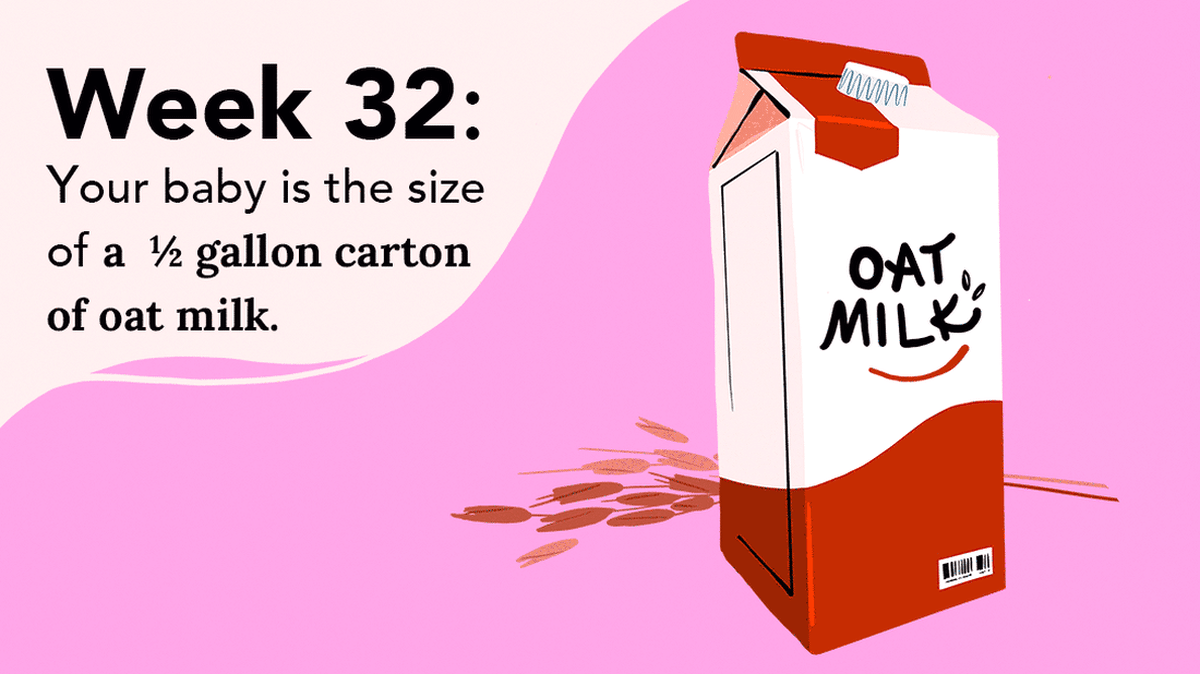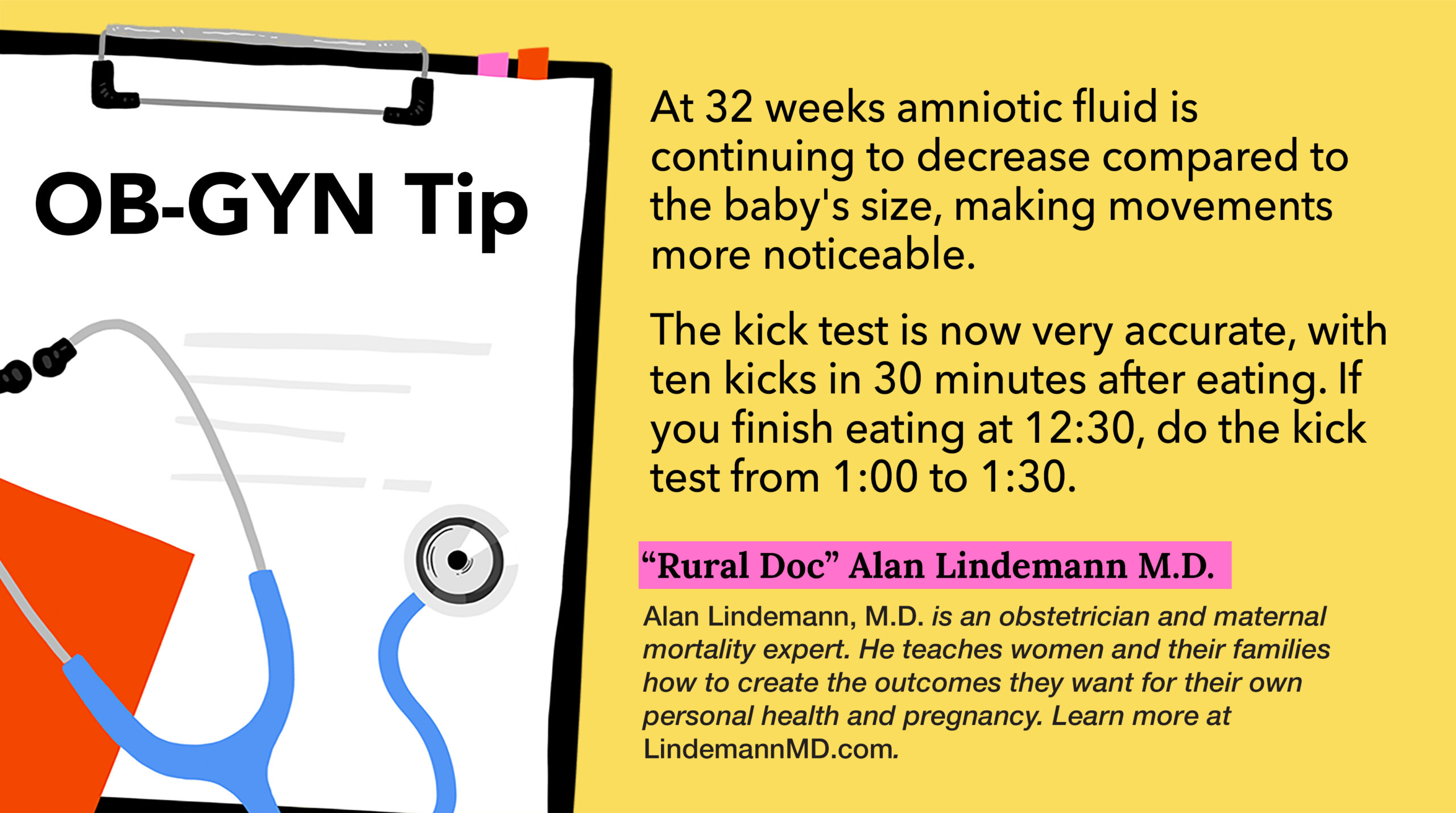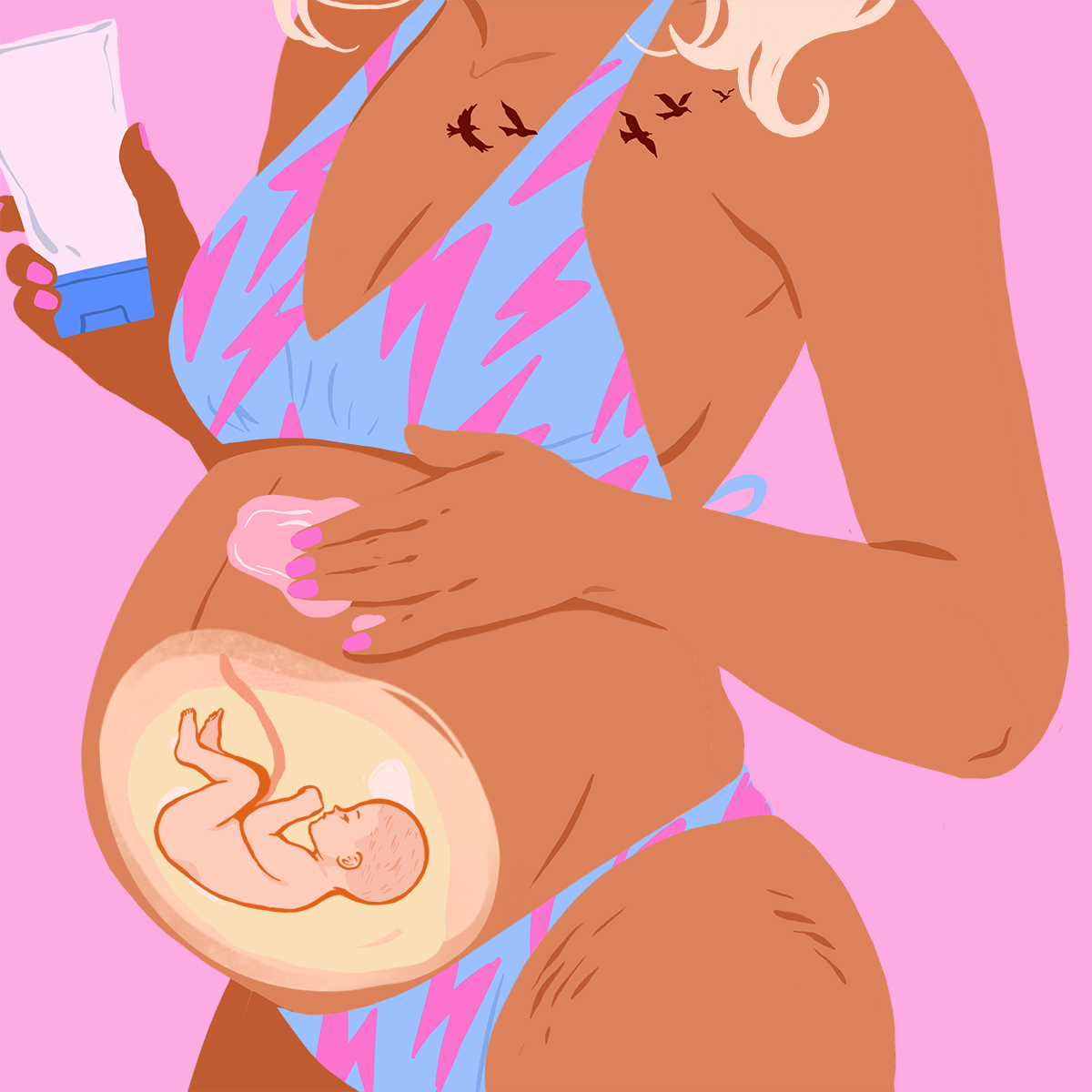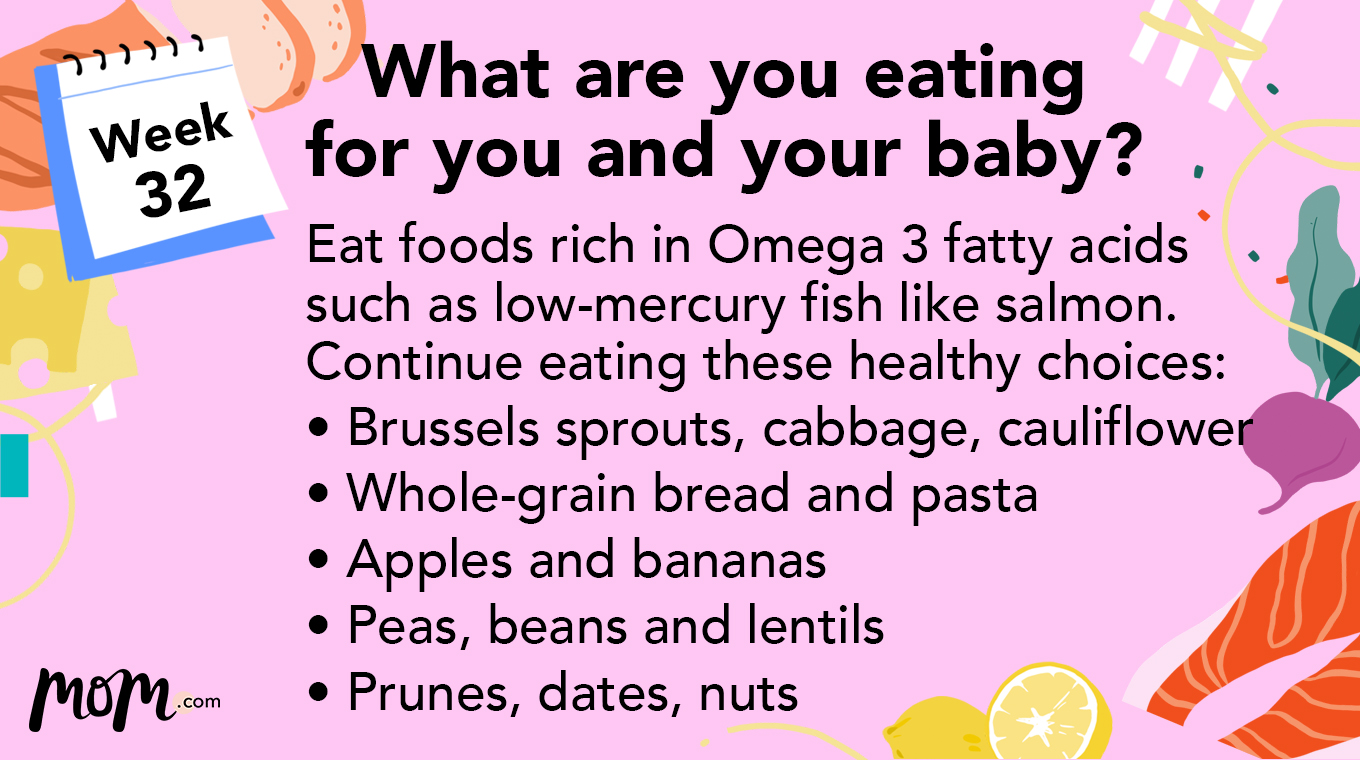
In this article
You’re 32 weeks pregnant!
Congratulations, you're 32 weeks pregnant. Baby is about the size of a 1/2 gallon carton of oat milk and has been practicing its sucking and breathing skills to prepare for life earthside. Baby weighs approximately 3 and a half pounds and is about eleven inches long.
Pregnancy symptoms at 32 weeks

Chances are, you’re having some pretty vivid dreams about now; many moms-to-be report having dreams about people and places they haven’t thought about in years, like high school friends and prom. Once again, blame hormones for this, and just for fun, consider writing them down to look back upon later.
Less fun, you may still continue to be constipated, out of breath, and experience leaking breasts at 32 weeks pregnant.
Constipation
The third trimester is a time when constipation is common so continue drinking your water and eating foods high in fiber. Hemorrhoids may also continue to be an issue during this time.
Colostrum (leaky breasts)
During pregnancy, your hormones are hard at work. Prolactin, which helps your body produce milk after your baby is born, increases at this time. It’s completely normal to experience colostrum leaking from your breasts during the third trimester.
What does 32 weeks equal in months?
32 weeks pregnant is approximately equal to 8 months pregnant, you’ve got about 8 weeks left to go.
Your ultrasound
If your doctor prescribes an ultrasound at 32 weeks, it may be to check the amniotic fluid. At this point in your pregnancy, baby should be taking up the most space and amniotic fluid tends to decrease. If your doctor suspects there’s too much amniotic fluid, they may perform an ultrasound to check baby’s development and growth.
Your pregnant belly at 32 weeks

At 32 weeks pregnant through the beginning of week 35, your baby may transition to a head-down position to get ready for delivery. You may notice that your bump seems to drop. It won’t happen in all pregnancies, but it can be common.
Pregnancy tips at 32 weeks
- Begin your research to find a lactation consultant near you to help you if you opt to breastfeed your baby.
- Spend time reconnecting with your partner. Go on a staycation babymoon or spend one-on-one time together before the arrival of your baby.
- Get the baby’s nursery in order, stock up on diapers and supplies like formula (if you’re not breastfeeding), onesies, and burp cloths.
Your pregnancy checklist at 32 weeks
- During your third trimester, your doctor may suggest counting fetal kicks to track baby’s movement. The kick count will help you determine if something is wrong or any changes occur; you’ll be able to better track baby’s patterns of awake active time vs. times of rest.
- Start babyproofing your home. It may seem like it will be a long way off before your baby is mobile and getting into everything, but your baby will be on the move before you know it. Take time now to install cabinet door latches under the sinks, install bumpers to hard edges like glass entertainment stands and install wall outlet safety covers into electrical outlets.
- Finish setting up the baby’s room or set up your co-sleeping bassinette that attaches to your bed now, before you need it.
- Have your baby’s infant car seat professionally installed. Consult a child passenger safety technician near you for more information.

Continue making healthful food choices including fruits, vegetables, and protein. Staying hydrated can also help ease Braxton Hicks contractions. At 32 weeks, be sure to keep eating healthy foods. During the last trimester, getting in Omega 3 fatty acids — a rich source of DHA — is essential to the development of your baby’s brain. Include low-mercury fish options in your diet like salmon. If you’re vegetarian or vegan, you can supplement your diet with DHA or flaxseeds.
Round out your diet with healthy choices such as:
- Cruciferous vegetables (Brussels sprouts, cabbage, cauliflower)
- Whole-grain bread and pasta
- Apples and bananas
- Peas, beans and lentils
- Prunes, dates, nuts, and bran cereals
When to call your doctor
Call your doctor if you find yourself suddenly excessively thirsty and have a reduced output of urination. If urination is painful or you have a fever over 101 degrees with or without a backache, give your obstetrician a call.
These symptoms require a call to your doctor:
- Fever
- Excessive thirst and reduced urination
- Decrease in fetal activity
Pregnant women are at a higher risk of illness as a result of a COVID-19 diagnosis and those diagnosed with COVID-19 have an increased chance of delivering pre-term (before 37 weeks), according to the Centers for Disease Control and Prevention (CDC).
Note: If you are visiting your doctor during COVID, be sure to confirm that the doctor’s office is following COVID protocols as indicated by the CDC.
Additional considerations: Twins/Multiples
Moms-to-be of twins or multiples are at an increased risk for preeclampsia. High blood pressure during pregnancy is tested regularly throughout your pregnancy through urine samples. Your doctor is looking for protein levels in your urine. If you notice swelling in your feet, hands, or face, blurry vision, shortness of breath, or excessive weight gain, be sure to contact your obstetrician for an evaluation.






